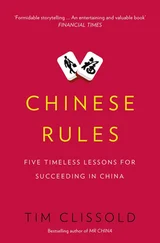
They gathered in the Sonora, as suitable as anywhere for trying to gain a new foothold on the universe, conjure new prepositions, put an end to the bloodshed. All of them, the thinkers and tinkerers, the particle-accelerator designer and linguists, anthropologists and cosmologists, and one playwright. Anyone, looking up upon arrival, would’ve thought that the mathematicians had arrived early and been granted the ability to play with the sky. Linda Mesner was there from Cal Tech, as was Abe Dodson, who’d come out of retirement for the occasion. As they registered and passed through the labyrinthine security system, they were all fitted for customized suits, for the conversations, it was obvious, would get heated, ran the risk of turning on a dime into Conversations. They fitted themselves into helmets whose glass was as thick as walls, voices amplified and played through a centralized sound hub so that groups could talk freely. Picture them, then, standing amid the cacti — the suits protected against the spines, so that you could bounce around out there with impunity, barbs landing on you harmless as raindrops till you became, yourself, “part saguaro,” as one participant put it on his blog, until it was taken down the next day for security reasons. They worked feverishly for eighteen-hour stretches and then climbed out of the suits, so that they wouldn’t feel entirely claustrophobic and could go back to their bodies, which, it was felt, would be salubrious for their minds. According to the waivers that they’d signed, they all had to remain silent for the rest of the night, the only exception being their sleep talking, which, it was decided, couldn’t be controlled and, moreover, wasn’t likely to be very dangerous. Many crumpled in exhaustion, retreating either to their tents or to the cabins that had been put together for the occasion. Others, however, were so charged up at the end of the workday that they couldn’t possibly have slept, couldn’t sit still. They unzipped their tents, still feeling the weight and girth of the roomsuits, which had come to feel like skins. Their senses revived as the stars began to multiply in the sky, more and more, it seemed, with every minute that passed, and some were led to dance, others to kiss, and still others to wander like bedouins or pariahs. The only sound was that of the wind throwing itself against the ironwood and the palo verde and the ravines and a single looming butte where its whipping was already etched firm. It is hard to fault them for believing that what they were hearing was the sound of the universe in full accordance with itself. In the distance, a coyote loosed an occasional howl, as if unable or unwilling to share in their compact with silence.

One who came with them to the desert was a philosopher of mind named Gavin Walters. An ex-philosopher, maybe. He came down from Oregon, where he was legendary even then, even before, against all odds, he made his contribution to unraveling the mystery of the Conversations. At forty-nine, he’d spent the past few years shunned and disgraced, living in a shack and spending whole days where he’d talk to no one but the postman, who became his best friend. His former students and colleagues had no shortage of theories about his mental decline — it was widely accepted that he was ill, ironic, given that his early papers, on which he’d built his reputation, had been on the question of whether there was a class of delusions that could be said to be extensional entities.
You could say that he invented the field; uncontroversially, he took it further than anyone else had to that point. The idea was to ingest as many and as various substances as he could track down, legal and illegal alike, and describe them. Just describe, bracketing out any expectations, any hangups about what society felt about them and about your using them, or what you were supposed to feel or taste. He scraped mold from rotting pineapples, ingested the hottest chilis he could land, plus the classics, weed, ibogaine, the full gamut of prescriptions. For him, coke that was cut with different things was more compelling than the purer stuff. He went on to document them like a wine critic, venturing far beyond the traditional descriptive armature of taste, trying, rather, to map the path the substance took within his body and beyond, how it altered what he defined as his body. He smoked bean curd and mashed pomegranate seeds and munched on talus.
He chose a set of baseline activities that he could use to measure the effects against some standard. These activities were playing chess, manipulating a cat’s cradle, writing poetry, and having sex, broadly defined. He scavenged the hindquarters of stores when mint was being dumped and then wildcrafted it in the fields behind his cabin. His outpost drew protégés — young and disaffected, bored with food, as well as the more readily available drugs. Like some latter-day Aquinas, he had them all contributing to his Encylopedia of Substantive Phenomenology, scribbling his dictated words and their own. By the time he got to the Sonora Summit, he was long past burnt, the envisioned book a chimera of ambition and appetite, part gourmand’s ramblings, part Husserlian explorations, part Proustian contemplation, and many parts schizoid rant.
How he’d even found out about the Summit was a mystery. Uninvited, he’d hopped the rails down and talked his way into a car with an algorithm expert and a quantum physicist. When he got there, they let him stay, even though his name wasn’t on any list, the physicist he’d ridden over being willing to vouch for him based only on their conversation on the long, unremittingly straight road. Walters had this theory that there was some alien sentience, akin to body snatchers, but rather than bodies, they were stealing conversations, and that maybe their sense of time was different enough from ours that they were outgrowing them, exploding them as they outgrew them, or maybe they were exploding them to open up new dimensions that they could then colonize. Over the weekend, he went from being seen as a colorful outlier to an integral player. So that people actually listened when he described the opposite of the Conversations, what he called “kismet,” meaning moments when people found common ground in an almost transcendent way. For Walters, kismet was no less tangible than kumquats, the balm that healed those ruptures in the cosmic fabric that had been opened up by the Conversations. But of course it was impossible to test this theory, because such moments had to arise spontaneously, couldn’t be staged, prefabricated. Was he a crackpot or a visionary or both? Was it possible that perhaps the most plausible explanation was being offered by someone who anyone with an ounce of sanity would have long ago consigned to the realm of the insane?
That night, linguists slept with cosmologists, engineers with translators, and a woman allowed Walters to do things with her and a Bufo alvarius. Her moans, an inarticulate report in the air, alternated with those of the coyote, who may or may not have been responding. Rolling off her, he reached for his notebook, taking down a description, followed by a poem whose greatest lines, in his estimation, were “the haptics of venom” and “the gravid gash that spitfires intratime, outgabbing itself.” He drifted off, more content than he’d felt in many years, she next to him, and at some point during the night he came awake and muttered something about the poem, wanting to share it with her, the her in it. She bolted upright, startled but quickly regaining her composure, reminding herself that there oughtn’t be any talking whatsoever, not even to prevent talking, so she shook her head emphatically and made noises to smother his words. He gave up, lay back again. At daybreak, he had occasion to glance at the poem, and not only was that line not there but the whole thing was written in a language he couldn’t understand, maybe no language at all. They made it to morning showers without ever talking about what had happened. At breakfast, the playwright recounted a dream of coming eyeball-to-eyeball with a scorpion that had taken up lodging inside his roomsuit. He remembered it that morning only on slipping back into his suit.
Читать дальше













